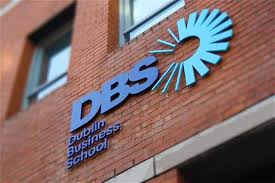
Dublin Business School Ireland
Dublin Business School Acceptance Rate: Key Facts for Applicants
Introduction
Dublin Business School (DBS) is one of Ireland’s leading private higher education institutions, offering a wide range of undergraduate, postgraduate, and professional programs. Known for its industry-focused curriculum and strong ties to the business community, DBS attracts students from across the globe.
A crucial factor for prospective students is the Dublin Business School acceptance rate, which helps gauge their chances of admission. This article explores the acceptance rate, fees, rankings, and reasons to study at Dublin Business School in Ireland, providing valuable insights for applicants.
Dublin Business School Acceptance Rate
The Dublin Business School acceptance rate is estimated to be around 70-80%, making it a moderately selective institution. Unlike highly competitive universities with single-digit acceptance rates, DBS maintains an inclusive admissions policy, welcoming a diverse student body.
Factors Influencing Acceptance Rate
- Academic Qualifications – DBS evaluates applicants based on their previous academic performance. For undergraduate programs, a high school diploma or equivalent is required, while postgraduate applicants need a relevant bachelor’s degree.
- English Language Proficiency – International students must demonstrate proficiency through tests like IELTS (6.0+ for undergraduates, 6.5+ for postgraduates) or TOEFL.
- Work Experience (for some programs) – Certain postgraduate courses, such as MBAs, may require professional experience.
- Personal Statement & References – A well-crafted personal statement and strong references can improve admission chances.
While the Dublin Business School acceptance rate is relatively high, meeting the minimum requirements does not guarantee admission, as some competitive programs may have stricter criteria.
Dublin Business School Fees
Understanding the Dublin Business School fees is essential for financial planning. Tuition costs vary depending on the program level and student nationality (EU vs. non-EU).
Undergraduate Programs (2024 estimates)
- EU Students: €6,000 – €8,500 per year
- Non-EU Students: €10,000 – €13,000 per year
Postgraduate Programs (2024 estimates)
- EU Students: €8,500 – €12,000 per year
- Non-EU Students: €12,000 – €15,000 per year
MBA Programs
- EU Students: ~€13,500
- Non-EU Students: ~€16,000
Additional Costs
- Accommodation: €600 – €1,200/month
- Living expenses: €700 – €1,000/month
- Books & supplies: €200 – €500/year
DBS offers scholarships and payment plans to assist students financially.
Dublin Business School Ranking
While Dublin Business School ranking may not compete with Ireland’s top public universities, it holds a strong reputation in business and professional education.
Key Rankings & Recognitions
- QS World University Rankings: Not globally ranked but recognized for business programs.
- National Rankings: Among Ireland’s top private colleges.
- Accreditations: Recognized by Quality and Qualifications Ireland (QQI) and affiliated with international bodies like ACCA and Chartered Institute of Management Accountants (CIMA).
DBS is particularly known for:
- Strong industry connections
- Practical, career-focused programs
- High graduate employment rates
Why Study at Dublin Business School in Ireland?
Ireland is a top study destination, and Dublin Business School in Ireland offers unique advantages:
1. High-Quality Education & Internationally Recognized Degrees
Irish universities are globally respected, and DBS programs are designed to meet industry demands, ensuring graduates are job-ready.
2. Post-Study Work Opportunities
Ireland’s Third Level Graduate Scheme allows non-EU graduates to stay for up to 24 months to seek employment.
3. Thriving Business Hub
Dublin is a European tech and financial hub, hosting giants like Google, Facebook, and LinkedIn. DBS’s strong corporate links provide excellent internship and networking opportunities.
4. Vibrant Student Life & Cultural Experience
Ireland is known for its friendly locals, rich culture, and lively social scene. Dublin offers a mix of history, arts, and modern urban living.
5. Affordable Compared to Other English-Speaking Countries
While living costs in Dublin are rising, Ireland remains more affordable than the UK, US, or Australia for international students.
Conclusion
The Dublin Business School acceptance rate of around 70-80% makes it an accessible choice for students seeking quality education in Ireland. With reasonable Dublin Business School fees, strong industry connections, and a prime location in Europe’s business hub, DBS is an excellent option for those pursuing business, finance, or professional studies.
Whether you’re drawn by Ireland’s post-study work opportunities, vibrant culture, or world-class education system, Dublin Business School in Ireland provides a pathway to academic and career success.





